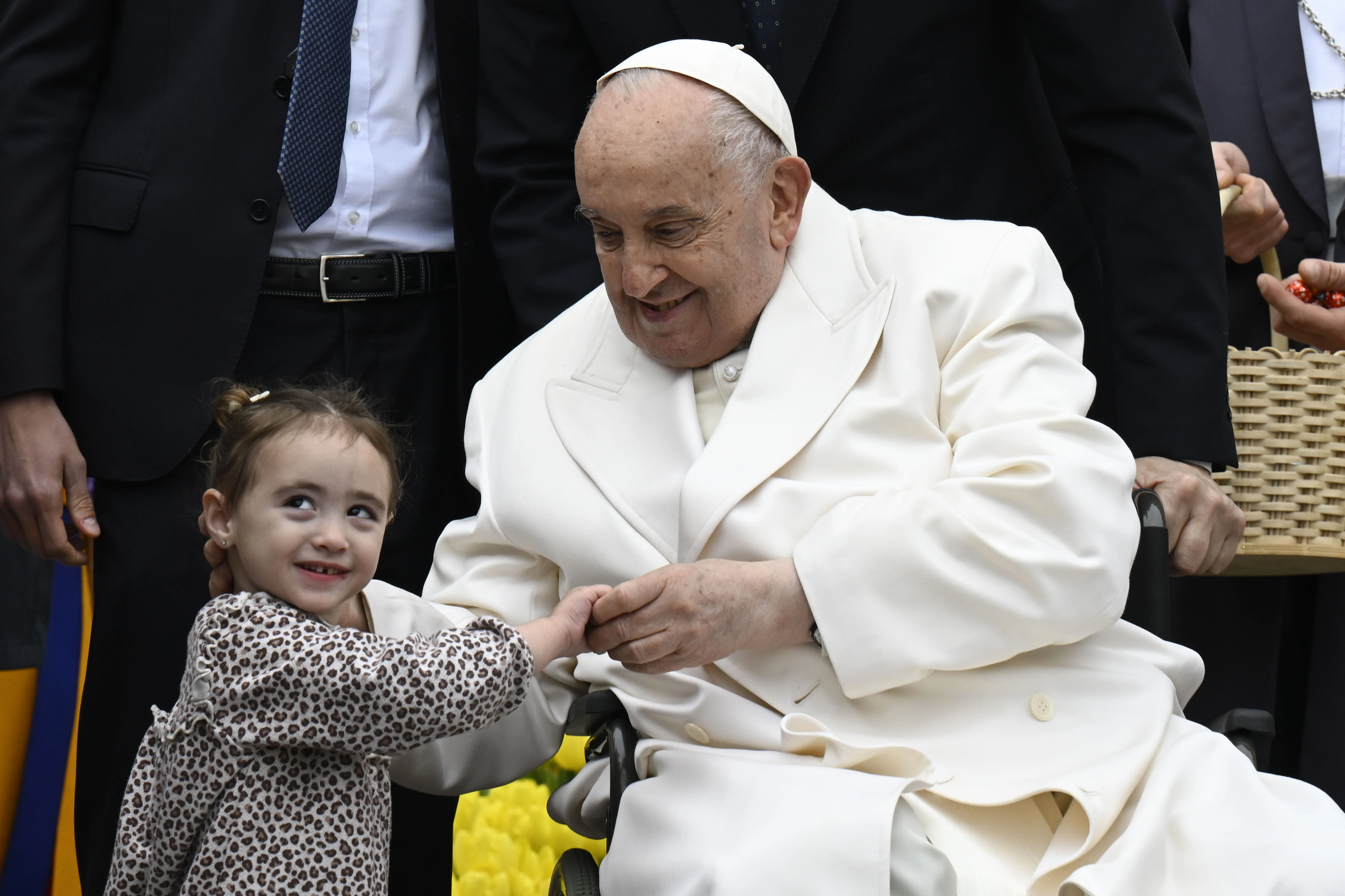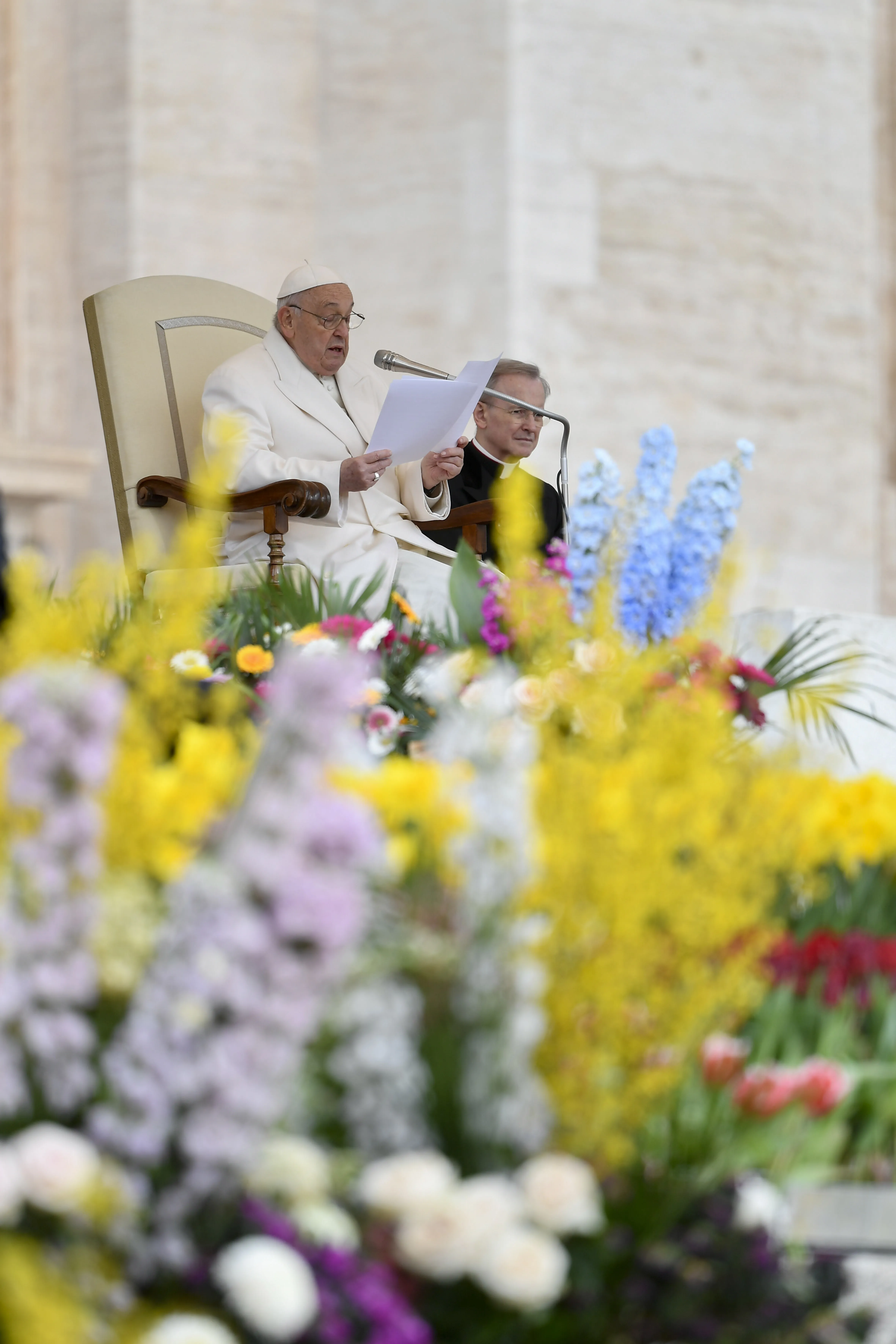 As smoke billows from the Ministry of Finance building behind them, people leave the area after hearing gunshots from armed gangs near the National Palace in Port-au-Prince, Haiti, on April 2, 2024. / Credit: CLARENS SIFFROY/AFP via Getty Images
As smoke billows from the Ministry of Finance building behind them, people leave the area after hearing gunshots from armed gangs near the National Palace in Port-au-Prince, Haiti, on April 2, 2024. / Credit: CLARENS SIFFROY/AFP via Getty Images
ACI Prensa Staff, Apr 3, 2024 / 18:30 pm (CNA).
The Haitian Conference of Religious (CDH) reported that a minor seminary run by the Spiritan Fathers was attacked April 1 by crime gangs amid the wave of violence that has been unleashed in the Caribbean country in recent weeks.
"It is with indignation that we note how sons and daughters of the country are attacking private and state property without scruple and endanger the lives of other people who seem to have no value in their eyes. Thus, on the evening of April 1, 2024, the St. Martial Minor Seminary School, a historic institution, was in the eye of the raging and devastating cyclone of a category of people who know no limits," the CDH lamented in a statement.
The criminals set fire to the computer room and looted the seminary library. In addition, several vehicles were burned.
That day, the same criminal gangs tried to take by force the National Palace of Haiti, which houses the offices of the president, although they failed thanks to the actions of the Haitian police and the support of the building's security units. Five officials were injured in the incident, one of them seriously.
Since the beginning of March, the political and social situation in Haiti has deteriorated exponentially. The crisis is a consequence — largely — of the unfettered actions of crime gangs that control approximately 80% of Port-au-Prince, the country's capital.
The Spiritan missionaries have been the latest in a long list of religious and laypeople who have been victims of violence. Given the reality, the CDH expressed, once again, "its deep pain at the dizzying chaotic situation" that the country is going through.
In the middle of Holy Week, Father Morachel Bonhomme, president of the CDH, encouraged members to keep up their constant prayers "for so many communities and citizens" who are prevented from living normally "because of the infernal and murderous insecurity" that affects all of Haiti.
The U.N.'s urgent appeal
Also during Holy Week, on March 28, the United Nations recommended "immediate and bold action" to address the difficult situation in the Caribbean country.
The U.N. said the rule of law in Haiti is practically nonexistent and that state institutions are "on the verge of collapse."
"Tackling insecurity must be a top priority to protect the population and prevent further human suffering. It is equally important to protect institutions essential to the rule of law, which have been attacked at their very core," said U.N. High Commissioner for Human Rights Volker Türk.
According to the organization, the number of victims of violence in Haiti increased considerably in 2023, compared with previous years, with 4,451 people dead and 1,668 injured. In the first three months of 2024, 1,554 people were killed and 826 injured (as of March 22).
Furthermore, the U.N. reported that sexual violence against women by crime gangs has worsened in recent weeks and that the majority of cases are not reported and remain unpunished.
Finally, the United Nations Children's Fund (UNICEF) stressed that education will be key to achieving peace and well-being in Haiti.
"In a country facing increasingly complex conflicts and instability, education can never be considered simply an option; it must be recognized as a necessity, a matter of survival and a key to social stability," the agency concluded.
This story was first published by ACI Prensa, CNA's Spanish-language news partner. It has been translated and adapted by CNA.













